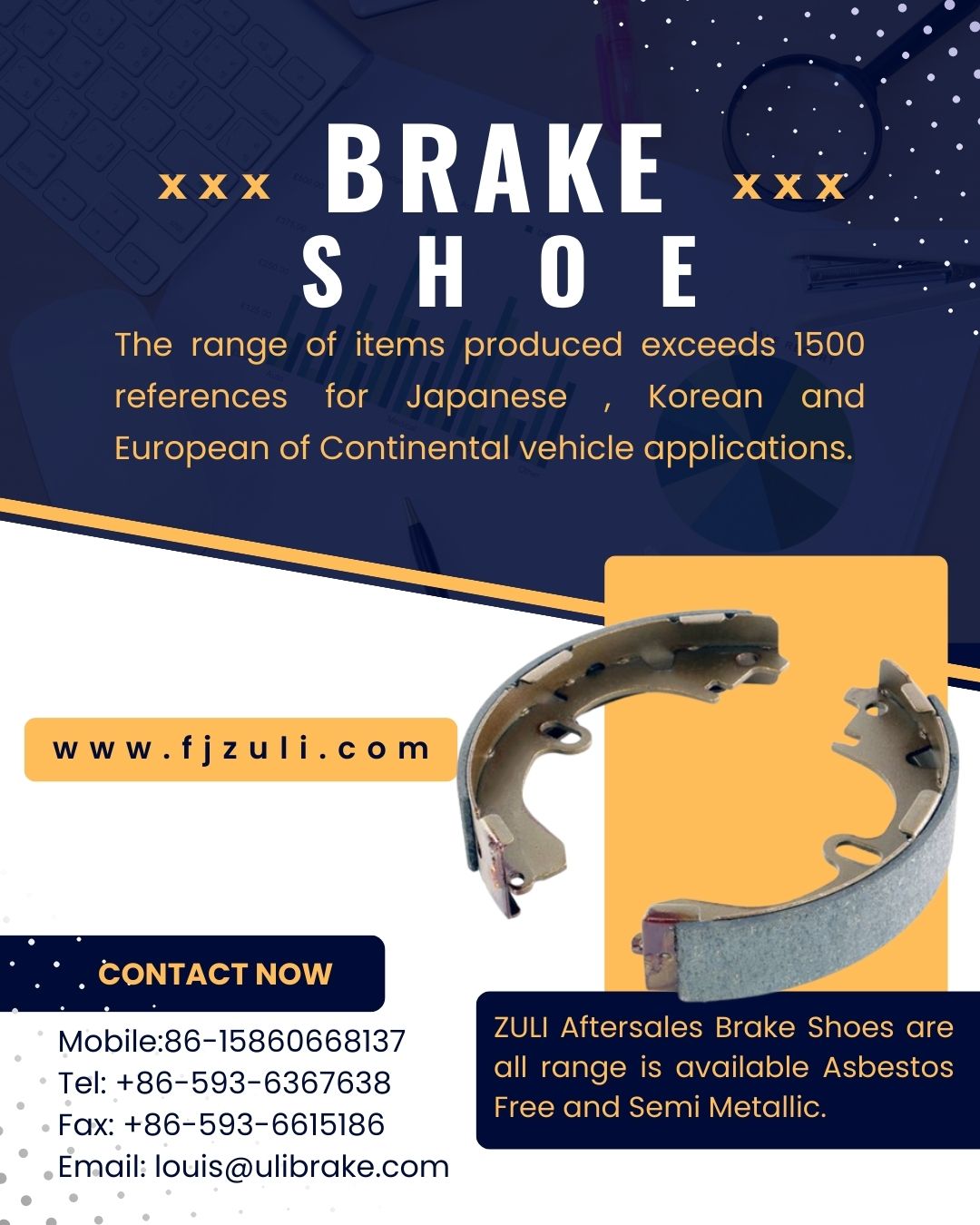When it comes to vehicle maintenance, understanding the various components of your braking system is crucial. Two common brake systems used in vehicles are rear brake pads and drum brake shoes. While both serve the same purpose of slowing down and stopping your vehicle, they differ in terms of design, function, and suitability for different types of vehicles. In this article, we will explore the key differences between rear brake pads and drum brake shoes to help you determine which system is best suited for your vehicle.

Rear brake pads are a vital component of disc brake systems. They are located inside a brake caliper and work in conjunction with a disc rotor to create friction and slow down the vehicle. These pads are typically made of a composite material that includes friction modifiers, binders, and metallic fibers, designed to withstand high temperatures and provide optimal braking performance.
Efficient Heat Dissipation: Rear brake pads are excellent at dissipating heat due to their design and contact with the disc rotor. This allows for consistent braking performance, even during prolonged or heavy braking.
Consistent Performance: Brake pads offer consistent and predictable braking performance, enabling precise control over your vehicle.
Easy Maintenance: Replacing rear brake pads is relatively straightforward and can be done without removing additional brake system components. This makes maintenance and repairs easier and more cost-effective.

Drum brake shoes are an integral part of drum brake systems, which were widely used in older vehicles and are still found in some modern vehicles, particularly in the rear wheels. These brake shoes are housed inside a brake drum and are pushed against its inner surface to generate friction, slowing down the vehicle.
Simplicity and Durability: Drum brake shoes have a simple design and are less prone to damage from external elements, such as water, dust, and debris. This makes them more durable and suitable for vehicles that operate in challenging conditions.
Parking Brake Function: Drum brake systems often incorporate a parking brake mechanism, which is typically engaged by activating the brake shoes. This can be advantageous in certain situations where additional parking brake functionality is required.
Cost-Effective: Drum brake systems, including brake shoes, are generally less expensive to manufacture and maintain compared to disc brake systems, potentially resulting in lower costs for vehicle owners.
The choice between rear brake pads and drum brake shoes depends on several factors, including the vehicle type, driving conditions, personal preferences, and regulations. Here are a few considerations:
Vehicle Type: Many modern vehicles are equipped with disc brakes on all four wheels, providing superior braking performance. However, certain vehicles, especially older models or vehicles designed for heavy-duty applications may still feature drum brake systems.
Driving Conditions: If you frequently drive in hilly or mountainous areas or carry heavy loads, disc brakes with rear brake pads may offer better stopping power and heat dissipation. Drum brake shoes may be suitable for lighter vehicles or those operating in less demanding conditions.
Personal Preferences: Some drivers prefer the feel and responsiveness of disc brakes, while others appreciate the simplicity and reliability of drum brake systems. Consider your driving style and preferences when making a decision.
Regulatory Requirements: In certain regions, vehicle safety regulations may mandate the use of a specific brake system. Ensure you are aware of any legal requirements before making a choice.
In summary, rear brake pads and drum brake shoes are two different braking systems with distinct advantages. Rear brake pads excel in heat dissipation, offer consistent performance, and are relatively easy to maintain. On the other hand, drum brake shoes provide simplicity and durability, and often incorporate a parking brake function. The choice between the two depends on factors such as vehicle type, driving conditions, personal preferences, & regulatory requirements. If you're unsure, consult with a trusted mechanic or automotive professional who can guide you in selecting the most suitable brake system for your vehicle's needs. Remember, regular brake maintenance and inspections are essential for safe and reliable vehicle operation.
Previous: Navigating the Vast World of Vaping: Your Ultimate Guide to Online Vape Sites
Next: 5 Simple Statements About Peru butterfly valve Explained
Copyright:@2020-2021
Comments Please sign in or sign up to post.
0
0 of 500 characters used